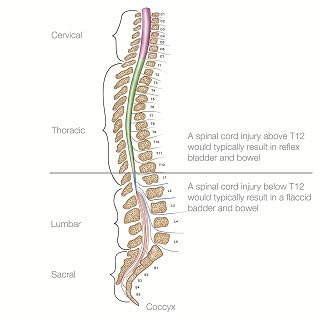Going to the toilet to have a bowel movement is something most people take for granted and consider it a very private matter. So when you suddenly experience a problem with your bowels, you can feel rather isolated and embarrassed to talk about the issue.
How common is it to have a bowel problem?
As a conservative estimate there are around 6.5 million people in the UK today with some form of bowel problem, that’s 1 in 10 of us. Of this number an estimated 2 million people suffer from chronic constipation. Despite being so common, bowel difficulties are still not as openly talked about as they should be and many people needlessly suffer in silence and don’t get the help they need.
The choice and availability of treatments, products and medicines has never been greater and there is plenty of good advice and support available. In some cases bowel problems can be completely cured and in others they can be effectively managed with the right products or treatments, so you can regain your quality of life.
The two most common problems people experience are bowel leakage, when you cannot control when your bowel is open and constipation, where you experience difficulty in moving your bowels.
It can be embarrassing to speak out about, which is why many people can go for years without telling anyone about their problem. Because many people never visit their doctor or nurse or reveal their symptoms, the exact number of people affected by bowel problems is unknown. But it is more common than you might think:
- Studies suggest that approximately 2% of the adult population have daily or weekly bowel leakage episodes
- The prevalence for adults over 65 years is 7%, and in retirement homes it’s as high as 33%
- Studies indicate that up to 20% of the population have problems with constipation
Without proper treatment and management, bowel problems can seriously affect quality of life and prevent people from doing the things they enjoy.
Frequently Asked Questions
This FAQ is intended as a guide to commonly asked questions. Please always consult your healthcare professional regarding bowel problems.
How does the bowel work?
The bowel is the last section of the digestive system and is divided into the small intestines and the large intestines (the colon, rectum and anus). The main function of the small intestine is to absorb nutrients from food digested in the stomach. The main function of the large intestine is to absorb water and to form stools from any waste products that cannot be used by the body. Stools are discharged from the body via the rectum and anus. View a video of how the bowel works.
What is bowel leakage?
Bowel leakage occurs when you cannot control when your bowels open, resulting in a bowel accident. The condition can range from minor leakage and soiling of underclothes to complete and uncontrolled emptying of the rectum.
What is constipation?
The symptoms vary from person to person but are often characterised by decreased bowel movements, bloating, discomfort, straining and spending long amounts of time try to pass stool.
What are the causes of bowel problems?
Bowel problems can be caused by a number of different conditions – some relatively minor and some potentially life threatening. Neurogenic causes include spinal cord injury, spina bifida and multiple sclerosis. Non-neurogenic causes include obstetric trauma (sphincter muscle damage after childbirth), cancer of the bowel or colon, Inflammatory bowel disease. This list is by no means exhaustive.
What is neurogenic bowel?
Neurogenic bowel can be described as slow movement of stools (poo), constipation, bowel leakage, and difficulty emptying the bowel. Control of the external anal sphincter muscles may also be disrupted, increasing the risk of bowel accidents.
There are two main types of neurogenic bowel dysfunction:
- Reflex bowel
- Flaccid bowel
Reflex bowel
Reflex bowel causes loss of the ability to feel when the bowel is full. Although the anal sphincter muscle (the muscle that keeps the anus closed) remains tight, it will open on a reflex basis when the rectum becomes full and, therefore, the bowel can empty at any time unless appropriately managed. Reflex bowel can occur when the spinal cord is damaged above the T12 level.

Flaccid bowel
Flaccid bowel is when the anal sphincter muscle (that normally keeps the anus closed) becomes relaxed and stays open, often leading to accidental emptying of the bowel. Flaccid bowel is generally caused by damage below the T12 level.
One cause of neurogenic bowel is spinal cord injury (SCI). The impact on bowel function depends on the level of spinal cord injury and where the damage occurs (as mentioned above).
Other possible causes of neurogenic bowel include multiple sclerosis, spina bifida and Parkinson’s disease.
Find out more
If you have neurogenic bowel it must be properly managed. Learn more about symptoms and how to take care of your bowel.
How can bowel problems affect my lifestyle?
Bowel leakage and constipation can be very uncomfortable, and they also have a significant impact on our quality of life. Apart from the frequent physical discomfort and bloating, you may worry about having an accident in public. It makes it important to find a way to take care of your bowel.
What can I do to manage my bowel problems?
Bowel problems can often be improved by changing diet; there are also several types of medication that can help. Transanal irrigation can be used to help prevent constipation and bowel leakage.
Find out more
Read more about Peristeen®, a bowel irrigation system, for predictable bowel management.